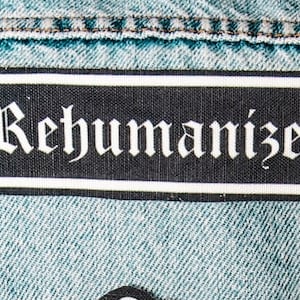have one’s ears pinned back: Idiom Meaning and Origin
What does ‘have one's ears pinned back’ mean?
The idiom "have one's ears pinned back" means to be severely reprimanded or criticized for something one has done wrong. This phrase originated from the physical act of pinning back a dog's ears to punish and correct its behavior.

Idiom Explorer
"Up on one's ear" means to be shocked or surprised by something unexpected or unusual. It can also refer to being in a challenging or difficult situation. The idiom is often used to describe a sudden and drastic change in one's circumstances or emotions.
The idiom "keep one's head on a swivel" means to remain alert, vigilant, or attentive in order to be aware of one's surroundings and potential dangers or threats. It emphasizes the need to be constantly observant and ready to react quickly.
The idiom "keep one's eyes peeled" means to stay alert and watchful, paying close attention to one's surroundings in order to notice any important or significant details or changes.
The idiom "keep one's ears open" means to be attentive and listen carefully for information or opportunities.
The idiom "in one's back pocket" means to have complete control or influence over someone or something.
The idiom "hear things" means to become aware of rumors or gossip that may or may not be true.
The idiom "hear out" means to listen to someone or something until the end, especially when one might have doubts or reservations. It emphasizes the importance of giving full attention and consideration to someone's ideas, opinions, or explanations.
The idiom "have one's mind about one" means to be determined or resolved in one's thinking or decision. It implies having a clear and unwavering mindset about a particular matter.
The idiom "have one's ears lowered" means to have a haircut or to get one's hair trimmed. It is a euphemistic way of referring to getting a haircut, particularly one that involves cutting the hair above the ears.
Ear-Squashing Origins
The idiom "have one's ears pinned back" is a phrase that is commonly used in English language. It means to reprimand or criticize someone strongly and harshly. This expression draws its meaning from the idea of forcefully and firmly correcting someone's behavior or attitude, similar to how one might control an unruly animal by physically restraining them. The phrase suggests a thorough dressing-down or a severe reprimand, often in response to a mistake, misbehavior, or a lack of discipline.
One possible origin of this idiom is believed to be the practice of pinning back the ears of animals, particularly certain dog breeds, in order to control their behavior. This metaphorical use of the phrase could be associated with a strong verbal dressing-down that metaphorically lands powerful blows to the recipient's pride or self-esteem. The idiom "have one's ears pinned back" is typically used to convey the severity and intensity of a reprimand or criticism, emphasizing the harshness and directness with which the recipient is admonished.
The meaning of the idiom "have one's ears pinned back" is related to several other idioms. One such idiom is "have one's ears lowered". This idiom is an informal way of saying that someone went to get a haircut. Just like having their ears pinned back, getting a haircut can be a form of correction or improvement in one's appearance.
Another related idiom is "have eyes in the back of one's head". This idiom means to be very observant or aware of what is happening behind you, as if you have an extra set of eyes. It is often used to describe someone who is able to detect things that are hidden or happening out of sight. While having one's ears pinned back may involve reprimanding or correcting someone, having eyes in the back of one's head suggests being vigilant and perceptive.
The idiom "have one's back up" is also connected to the concept of "having one's ears pinned back". It means to be defensive or ready to fight or argue. When someone has their back up, they are prepared to stand up for themselves or to protect their interests. This defensive stance can be a response to a reprimand or criticism, similar to how one might react when their ears are pinned back in a metaphorical sense.
Finally, the idiom "burn someone's ears" is related to "having one's ears pinned back". This idiom means to criticize or scold someone severely and angrily. When someone's ears are burned, it implies that they have been subjected to a fiery and passionate rebuke. This intense form of criticism is similar to the kind of reprimand that might result in someone having their ears metaphorically pinned back.
Understanding the nuances and origins of idiomatic expressions can provide valuable insights into the cultural and historical contexts in which they arise, shedding light on the diverse ways in which language evolves and shapes our communication.
Example usage
Examples of how the idiom "have one's ears pinned back" can be used in a sentence:
- After failing the exam, Paul had his ears pinned back by his parents.
- When Emily didn't meet her sales targets, her boss pinned her ears back during the meeting.
- The team had their ears pinned back by the coach after their disappointing performance in the game.
More "Punishment" idioms



